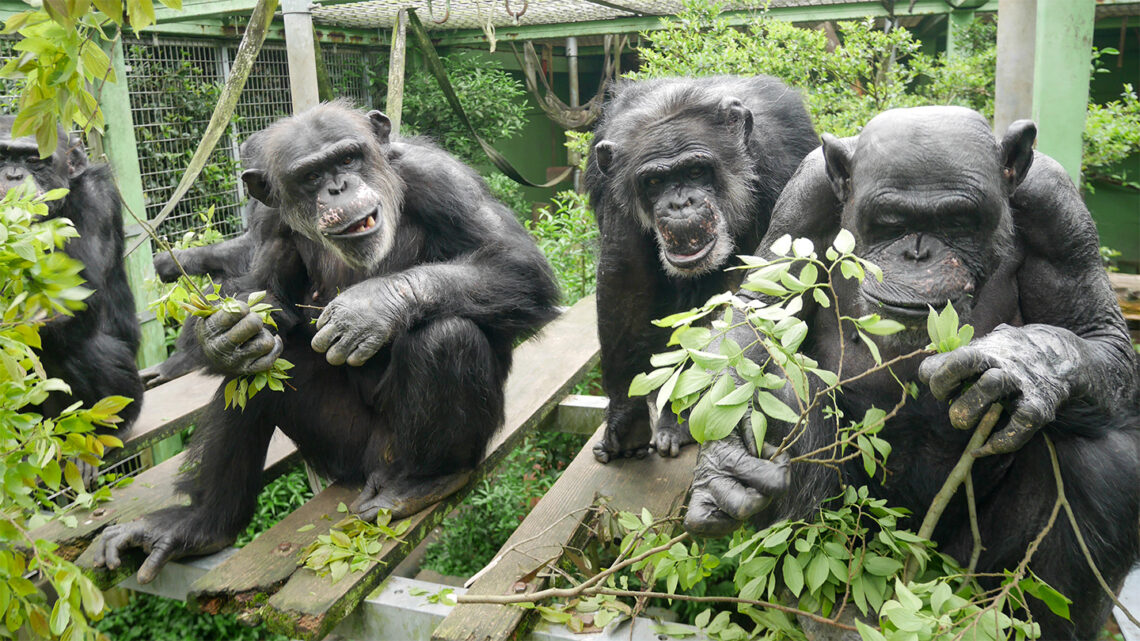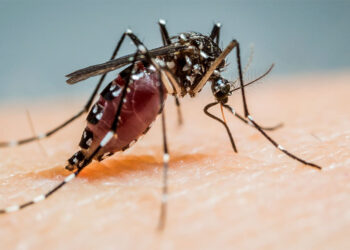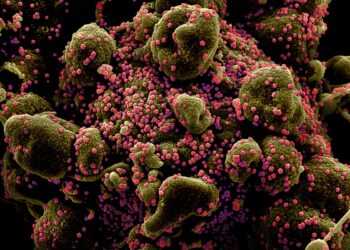Hate waiting in line for the bathroom? Chimpanzees have a social solution: Everyone go at once.
A study now shows that among chimps, peeing is contagious. It’s “the first study to investigate contagious urination in animals,” says Shinya Yamamoto. He studies animal behavior at Kyoto University in Japan.
His coworker, Ena Onishi, was first to get an inkling of this contagious tinkling. She, too, studies animal behavior at Kyoto University. And she spotted something odd while watching a group of captive chimps.
“I noticed a tendency for [them] to urinate at the same time,” she says. Onishi then wondered if peeing — like yawning and grooming — is contagious in these animals.
To find out, she and some coworkers spent more than 600 hours studying 20 captive chimps. These animals lived at the Kumamoto Sanctuary in Japan.
The team observed chimpanzees peeing more than 1,300 times. And the chimps were likely to pee together, these data revealed. If one chimp was near another that was peeing, it was more likely to start.
The researchers shared the new findings January 20 in Current Biology.
What causes group peeing?
This contagious peeing didn’t seem to depend on social closeness. That is, peeing was contagious among chimps that knew each other well and ones that didn’t. That was a surprise. It’s different from the species’ copycat grooming and yawning. In those cases, chimps that are socially closer are more likely to mimic such a behavior.
Contagious peeing instead was related to rank. Low-ranking chimps were more likely than others to start peeing if a nearby chimp did. “This was an unexpected and fascinating result,” Onishi says. And it might happen for a couple of reasons.
High-ranking chimps might influence the urination of others, she says. Or…
Read the full article here







